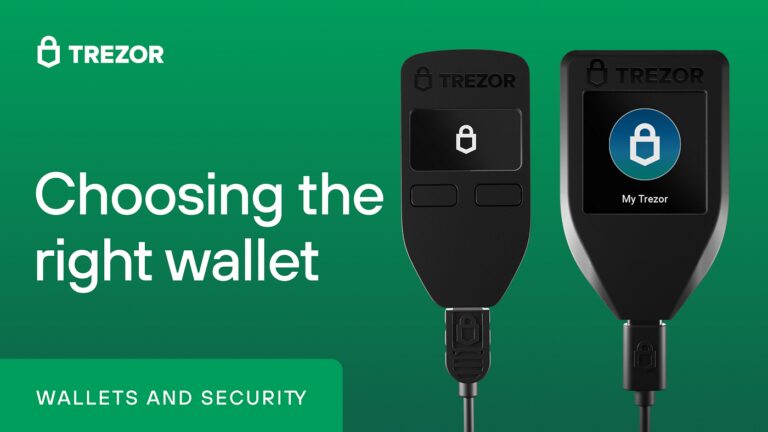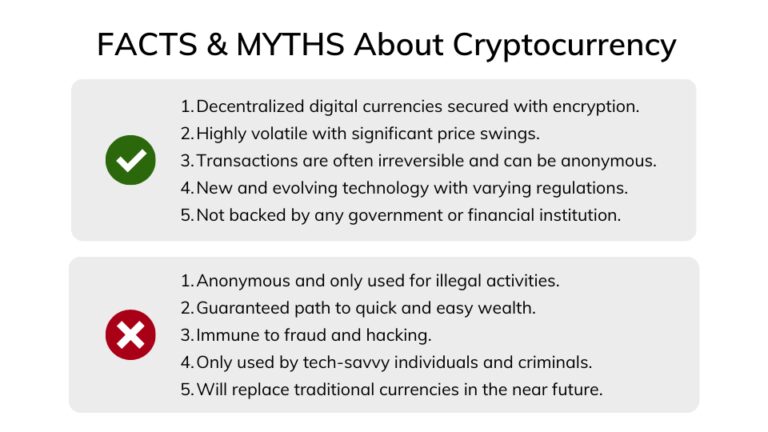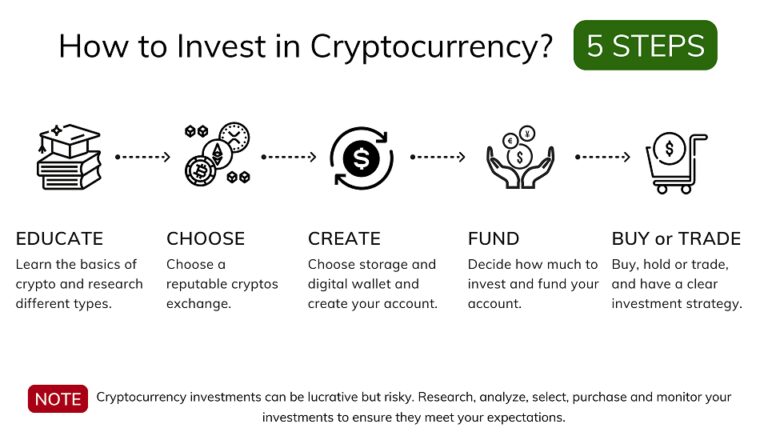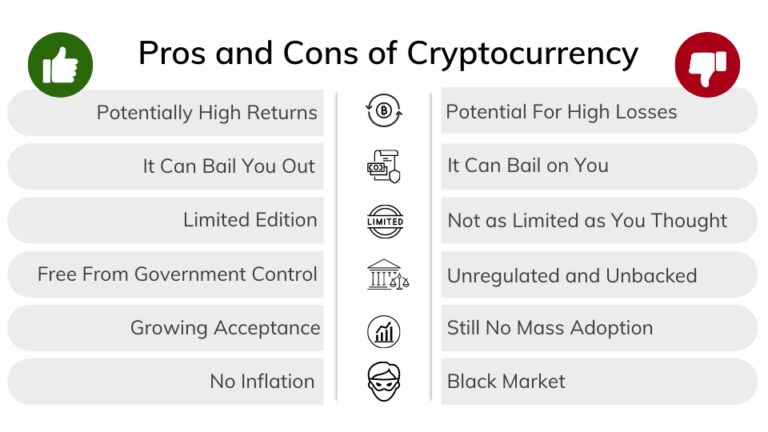Get an in-depth understanding of the benefits and challenges of using Trezor and other hardware wallets in Africa. With this comprehensive guide, you can make well-informed decisions about your cryptocurrency security. Stay ahead and secure your crypto assets effectively.

Hardware wallets, often dubbed as ‘cold storage’, are physical devices specifically designed to secure cryptocurrencies. They differ from ‘hot wallets’ like online or mobile wallets, since they store the user’s private keys offline, providing an added layer of protection against cyber attacks, data breaches, and unauthorized access. The principle behind hardware wallets is simple: keep your most important assets as far away from the internet as possible – out in the ‘cold’.
In Africa, cryptocurrency is becoming more significant, not just as an investment asset but also as a means of financial inclusion. For a vast population without access to traditional banking systems, cryptocurrency provides an alternative. It enables direct peer-to-peer transactions, remittances, financial savings, and investment opportunities. The rising interest in cryptocurrencies across Africa has consequently led to a surge in demand for secure storage solutions, with hardware wallets at the forefront.
Various hardware wallets are gaining popularity in Africa, with Trezor, Ledger Nano S, and KeepKey being the most recognized. Trezor, in particular, has earned a reputation for its robust security features and user-friendly interface.
– Trezor: Launched by SatoshiLabs, Trezor is celebrated as the world’s first Bitcoin hardware wallet. It supports a wide array of cryptocurrencies and offers top-tier protection against virtual and physical theft.
– Ledger Nano S: Ledger is another esteemed player in the hardware wallet sphere. The Ledger Nano S is known for its compact size, sleek design and multi-currency support.
– KeepKey: KeepKey prides itself in combining top-notch security with a seamless user experience. The device has a sizeable display screen for easy review and confirmation of transactions.
For a more detailed comparison of hardware wallets, you might want to check out our guide on the Best Crypto Wallets.
Cryptocurrencies are gaining traction worldwide, and Africa is part of this global trend. People are increasingly turning to hardware wallets, such as Trezor, for their cryptocurrency transactions due to the numerous benefits they offer. In this section, we’ll delve into the advantages of using Trezor and other hardware wallets in Africa.
The number one benefit of hardware wallets like Trezor is the enhanced security they provide. Hardware wallets store your private keys (a cryptographic element that allows you to access your cryptocurrency holdings) offline in a secure chip, thereby making them immune to hacking attempts. This is counter to the vulnerable nature of software wallets, which are susceptible to online threats due to their internet-based operations. Therefore, by adopting hardware wallets, you can be rest assured that your crypto assets are safe.
Another significant advantage of hardware wallets is that they offer you complete ownership of your cryptocurrency assets. In contrast to custodial wallets provided by exchanges, where the exchange has partial control over your assets, with a hardware wallet like Trezor, you’re the sole custodian of your cryptos. It’s your private keys; hence, your coins!
Hardware wallets are typically compatible with a wide range of cryptocurrencies. Trezor, for instance, supports more than 1000 digital coins, including Bitcoin, Ethereum, Litecoin, and much more. This broad compatibility makes hardware wallets versatile and beneficial to diverse crypto holders.
With the rise of blockchain technology, more online gaming and betting platforms are implementing crypto payments. Platforms like Bitsler, MyStake, Sportsbet.io, 20Bet, Rolletto, Stake, 22bet, Megapari, Fortunejack, Thunderpick, Trust Dice, Roobet, BC GAME, Roobet, Vave, and more have embraced crypto payments, boosting the need for secure and efficient wallets. With their high-level security and compatibility with various cryptocurrencies, hardware wallets prove to be a practical choice for gamers and bettors in this digital age.
To understand more about why wallets like these are the preferred crypto choice, view our in-depth analysis at: Why Trust Wallet is a Crypto Choice.

In the rising world of cryptocurrency, Africa has shown substantial growth and advancement. Aided by the use of hardware wallets, such as Trezor, individuals and businesses are making successful transactions daily. This section focuses on real-world examples proving the effective use of hardware wallets in Africa, and their impact on online gaming and betting platforms.
A plethora of African individuals and businesses are using hardware wallets like Trezor to conduct successful cryptocurrency transactions. For instance, a Africa-based e-commerce business switched from traditional banking systems to cryptocurrency transactions using Trezor hardware wallets. This move resulted in reduced transaction costs, increased speed, and easier cross-border transactions. Likewise, an IT firm in Nigeria leveraged the Trezor hardware wallet’s enhanced security to protect its cryptocurrency assets, mitigating the risks associated with online exchanges. This type of success story is becoming increasingly common throughout the continent, demonstrating the utility and efficiency of hardware wallets.
Online gaming and betting platforms in Africa are also seeing a significant impact due to the successful use of hardware wallets. With the increased security and convenience provided by devices like the Trezor wallet, gamers and bettors are more comfortable holding and using cryptocurrencies. In particular, platforms like Bitsler, MyStake, and Sportsbet.io have experienced an increase in crypto-based transactions. This trend indicates a shift towards cryptocurrencies and the use of hardware wallets in the gaming and betting sectors. For more information on the ease and advantages of using crypto, consider reading about the Benefits of ZenGo Wallet.
In conclusion, hardware wallets, with Trezor as a leading example, are making a significant contribution to cryptocurrency transactions in Africa. They are successfully utilized by individuals and businesses for their transaction needs, and are driving a shift towards crypto africage in the online gaming and betting industry. As more people begin to grasp the benefits of these devices, their prevalence in Africa is expected to continue rising.

While there are certainly many notable benefits for adopting hardware wallets for cryptocurrency in Africa, it’s crucial to also discuss the potential downsides. This includes factors such as the cost of acquisition and maintenance, the risk of physical damage or loss, and the technical complexity involved. For a comprehensive examination of these wallets, don’t forget to check out our Pros and Cons of Trezor Hardware Wallets article.
One of the first challenges that African users might face when considering hardware wallets like Trezor is the cost. These devices are typically more expensive than their software counterparts, making them less accessible to a large segment of the population, particularly in low-income regions. The cost extends beyond the initial purchase, as maintenance and potential updates might also incur additional expenses.
It’s worth noting, however, that this cost is often justified by the enhanced security and privacy provided by the hardware wallet, an aspect that should not be discounted when dealing with valuable cryptocurrency assets.
Another significant disadvantage is the susceptibility to physical damage or loss. Unlike digital wallets stored on a cloud, hardware wallets are physical devices that can be lost, stolen, or rendered unafricable due to damage. This can be a particular risk in regions with unstable electrical infrastructure or harsh environmental conditions that could potentially damage the device.
In addition, while most hardware wallets come with recovery options, the process can sometimes be complex and time-consuming, making it less than ideal, especially for users who need quick access to their funds.
A final drawback involves the technological proficiency required to effectively use hardware wallets. These devices typically involve a setup process and multiple steps to perform transactions, which might present a steep learning curve for individuals not familiar with technology or cryptocurrency.
There is a need for sound technical knowledge and understanding of how cryptocurrencies work to maximize the benefits of these wallets. This means users must be willing to invest time and effort to learn and understand the intricacies of handling such a wallet.
In conclusion, while hardware wallets like Trezor offer high security and control over one’s cryptocurrency assets, these advantages must be weighed against the cost, the risk of physical damage or loss, and the technical complexity involved. Every user must thus evaluate their specific needs, financial abilities, technical proficiency, and risk tolerance when deciding on the most appropriate form of wallet to use.

The successful adoption of cryptocurrency hardware wallets like Trezor in Africa faces a number of challenges. However, these can be overcome with a combination of user education and support, the provision of insurance and warranty options, and the implementation of localized solutions for hardware wallets.
One of the main obstacles to the broad-based adoption of hardware wallets in Africa is the technical complexity and steep learning curve associated with these devices. The majority of prospective users are deterred by the fear of making errors during transactions or inadvertently compromising their security.
To address this issue, companies that manufacture and distribute hardware wallets can invest in comprehensive user education and support initiatives. This can take the form of training workshops, online tutorials, and dedicated customer support hotlines. By breaking down the complexities and clarifying misconceptions, users can be equipped with the knowledge and confidence to effectively use hardware wallets for their cryptocurrency transactions.
Another significant challenge is the risk of physical damage or loss of the hardware wallet. In many parts of Africa, the cost of replacing a lost or damaged device can be prohibitive.
This problem can be mitigated through the provision of comprehensive insurance and warranty options. By ensuring their investment is protected against unforeseen circumstances, users can enjoy peace of mind and are more likely to consider acquiring a hardware wallet for their cryptocurrency transactions. Providers could also consider introducing affordable and flexible payment plans for the acquisition and maintenance of the hardware wallets, which would make them more accessible to a wider audience.
Finally, a one-size-fits-all approach to the distribution of hardware wallets in Africa is unlikely to be successful due to the continent’s diverse cultural, economic, and technological landscape. What works in one region may not necessarily be effective in another.
Therefore, solutions need to be localized to cater to the unique needs and conditions of each market. This could mean collaborating with local telecommunication and tech companies to optimize the hardware and software of the wallet for local infrastructure. It could also involve tweaking the user interface and instruction manuals to cater to local languages and cultural nuances.
Overcoming the challenges of using hardware wallets in Africa is no small feat. However, with the right mix of education, protection, and localization, the future of cryptocurrency transactions in Africa looks promising.

